-
KINOTEKA SNOWE Film Festival – Belgrad day one, October 20th
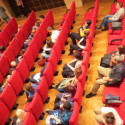
From first day SNOWE FF screening at Kinoteka – Stockholm stories – director Karin Fahlén (present at SNOWE FF) Rippan – shoer film director Anna Hylander (present as SNOWE FF) last movie Reunion – director Anna Odell KARIN FAHLÈN DIRECTOR STOCKHOLMS STORIES ANNA HYLANDER DIRECTOR – RIPPAN
-
SNOWE lecture with Anna Wahl
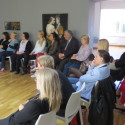
Anna Wahl holds a Chair, Professor Gender, Organization and Management, at the Department of Industrial Economics and Management, KTH. Her research areas are Organization and management theory, with focus on gender. She was a pioneer in the field of gender research on management in Sweden with the thesis Gender structures in organizations (Könsstrukturer i organisationer)…
-
SNOWE guests at Pink Studios Belgrade
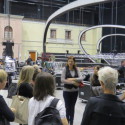
PFI Studios is one of Europe’s newest state-of-the-art film complexes. The studio lot includes 9 sound stages (8 operational and Sound Stage 1 to be completed in 2011), each with its own attached multi-storey annex, multiple production offices and facilities, workshops and an extensive back lot. PFI Studios is located in Belgrade, just 10 minutes…
-
SNOWE visit to Avala film studios
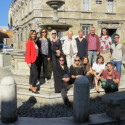
In June 1946, the government of the Socialist Federal Republic of Yugoslavia created the State Committee of Cinematography, in order to replace the provisional Film Enterprise of the SFRY. The Committee set out to establish film production companies in the various constituent states of Yugoslavia: the first and the largest of those was Avala Film,…
-
Morning program at RTS – Zikina sarenica

Radio Television of Serbia (Serbian: Радио-телевизија Србије – PTC or Radio-televizija Srbije – RTS) is the public broadcaster in Serbia. It broadcasts and produces news, drama, and sports programming through radio, television and the Internet. Since July 2001, RTS is a member of the European Broadcasting Union. RTS is also the largest broadcaster in the…
-
SNOWE – Belgrade from Danube and Sava perspective by night
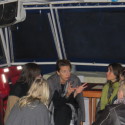
SNOWE arrange for moviemaker from Sweden one round trip from water perspective… and after all Belgrade still has a lovley living nightlife – some idea why? For me who lived in Belgrade even before ’90 – Belgrade had same habits before Yugoslavia’s break! Here is some possible answer. During the ’90s, Serbia went through the roughest…
-
SNOWE guests at Faculty of Dramatic Art – Belgrade University
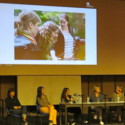
aculty of Dramatic Arts in Belgrade is the most important institution of artistic and scientific drama education in Serbia. This eminent institution of higher education, the arts and culture of the place in which the criteria in the form of dramatic arts. It is also the school from which come our most important creators and…
-
SNOWE guests visited Belgrad historical places – The Royal Palace

The Royal Palace was built between 1924 and 1929 with the private funds of His Majesty King Alexander I(the grandfather of HRH Crown Prince Alexander). The Royal Palace was the home of King Alexander I and King Peter II (the father of Crown Prince Alexander). Today The Royal Palace is the home of Crown Prince Alexander and his family.…
-
SNOWE visit continues at Film Center Serbia – FCS
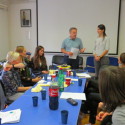
FILM CENTER SERBIA is a governmental institution of national importance that provides professional assistance to filmmakers. It was founded by the Republic of Serbia, and the founder’s rights are exercised by the Government in the name of the Republic of Serbia. The current institution was originally established by a decision of the Association of Film…

